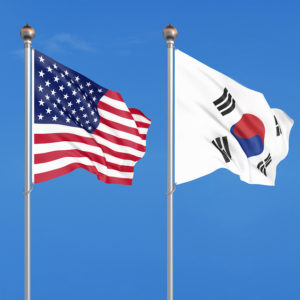The flurry of rhetoric from Pyongyang, Seoul and Washington bears out one of the great verities of the perpetual North-South Korean confrontation: The more things change, the more they stay the same. Or, more simply, same-old, same-old.
Actually, that’s not so depressing or negative as it might seem. At least, we are anesthetized into assuming that the diplomats and the bureaucrats, after all the nasty messages from Pyongyang, will cool it for a while or sit down for another few rounds of useless “negotiations” with the North Koreans.
This latest exchange is looking that way. The Americans, President Joe Biden, Secretary of State Antony Blinken, and National Security Adviser Jake Sullivan, have all said denuclearization is the goal. The North Koreans have issued dire warnings of the sort we’ve been hearing for decades.
Nobody expects denuclearization. Kim Jong-un will not say, fine, I’m giving up my nukes in the interests of peace and goodwill. On the other hand, even if he orders more missile tests, maybe the North’s seventh nuclear test, nobody expects a second Korean War.
All of which gives the impression that the summit between Biden and South Korea’s President Moon Jae-in at the White House on May 21 will turn into an exchange of pleasantries, affirmations of the U.S.-South Korean alliance, and pledges of mutual support ― all the stuff we’re accustomed to hearing.
The summit, though, may not be all that smooth and easy. It will be fraught with subtleties and nuances that should expose some of the fragility of the standoff on the Korean peninsula. No denying, Biden and those around him share quite a different view from that of Moon and his closest advisers.
The liberal Moon desperately wants to show he’s really gotten somewhere with the North since his election four years ago after the Candlelight Revolution that resulted in the ouster and jailing of the conservative former President Park Geun-hye. Moon remains the progressive who pursued the dream of reconciliation by courting Kim, meeting him on the North-South border three years ago; while Donald Trump fantasized about winning the Nobel Peace Prize, going down in history as the American president who worked everything out with the North Korean dictator.
Now the dream, like all the other visions of peace and reconciliation, appears like an illusory apparition. Did Trump and Kim really meet in Singapore in June 2018, and what happened to that love note they signed pledging “unwavering commitment to complete denuclearization of the Korean Peninsula”?
It’s possible to get cynical about anything to do with North-South rapprochement. I first visited Korea in September 1972 as the Far East correspondent for the Chicago Tribune. My mission was to cover talks staged under the aegis of the Red Cross organizations of North and South Korea. Hope was in the air. The word “denuclearization” was not in anyone’s normal vocabulary in 1972. Nobody worried about the North’s nuclear stockpile. They didn’t have one.
You can’t blame Moon for imagining it might still be possible to bring Kim to his senses and persuade him he’s got far more to gain by forgetting about nukes and opening his country up to capitalism as China did under Deng Xiaoping. Moon’s popularity ratings have dropped so low, he needs Biden to smooth the way to rapprochement by easing up on U.S. demands for denuclearization.
Ho-hum. We’ve been there before. None of this is going to work. Rhetoric will intensify. And China will come to the North’s rescue, shipping oil and food and other vital products to North Korea despite sanctions and COVID-19.
You have to wonder, though, how long can this standoff last before one leader or another says “I’m not going to take it anymore,” loses patience, and fires the first shots.
Fear not, that won’t happen any time soon. The North is too weak, too emaciated by COVID, hunger, and a lack of medicine, to fight anyone, but then nobody anticipated the Korean War, right? Good thing Biden and Moon will be talking. As long as Biden doesn’t fall for a “peace agreement” or “peace treaty,” meaning the U.S. would have to pull out its 28,500 troops, this summit should be fine.
Better to spout the same cliches than to agree on a formula that would weaken defenses against a foe that’s not giving up or backing down just because of a passing pandemic. COVID-19 may go away but not the danger of Korean War II.

